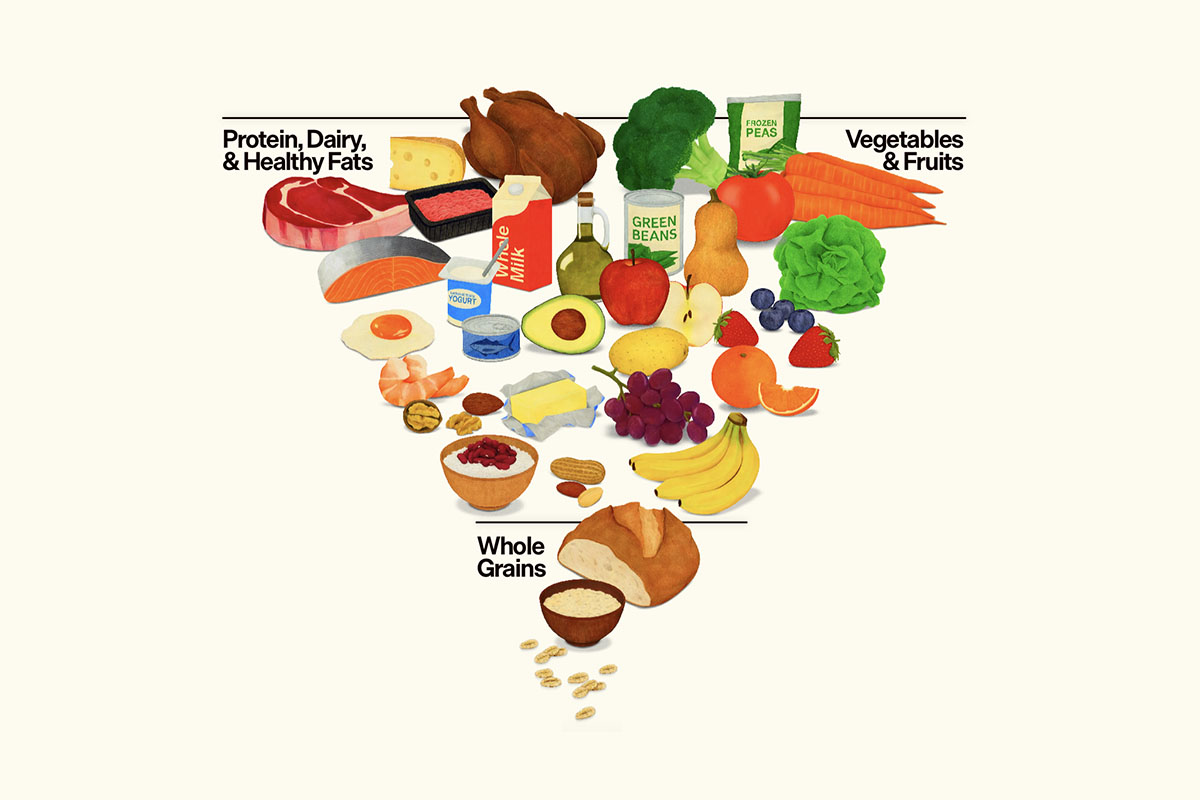“Disordered eating” and gastrointestinal cancers: If it’s not obvious to you by now that what you eat impacts your risk for cancer, you haven’t been paying attention to the latest research. There’s a link to obesity for most cancers, and consequent insulin resistance feeds the proliferation of cancers via insulin-like growth factor (IGF-1).
Additionally, consumption of poor quality processed foods—laden with chemicals, refined oils, and carbohydrate calories—disrupts cellular processes and leads to chronic inflammation, which is implicated in tumor promotion.
A new study with the provocative title “Unrestrained eating behavior and risk of digestive system cancers: a prospective cohort study” examines the relationship between what’s colloquially referred to as “pigging out” and oral, esophageal, stomach, small intestine, colon, and pancreatic cancer.
Do we actually need a study to demonstrate what’s so intuitively obvious?
But here it is. The researchers categorized study participants as to whether or not they practiced self-control, or engaged regularly in “unrestrained eating”—defined as “having the behavior of eating at any time.”
More and more Americans fall into this category. The traditional breakfast-lunch-dinner paradigm has been supplanted by eating on the run, snacking between meals, and eating late at night. In fact, BigFood has encouraged this trend by advertising that targets late-night TV viewers with tempting commercials for readily-available takeout food. Snacks and desserts abound in supermarket aisles. Soda and energy drinks are ubiquitous.
Nearly three million Americans are estimated to suffer from overt binge-eating disorder, now a formal psychiatric diagnosis—which may only represent the tip of a very big iceberg.
Now, you might argue that, of course, people with disordered eating might be more cancer-prone because they’re less disciplined in other areas of life. They might consume more alcohol, smoke cigarettes, exercise less, and be fatter.
But the researchers controlled for these variables. They matched overweight unrestrained eaters to more disciplined subjects of comparable weight; alcohol intake was nearly identical between the groups; and they used statistical tools to adjust for the effects of smoking status. Even the foods they ate were similar. And they accounted for activity levels.
And yet, the group with unrestrained eating patterns averaged an over 30 percent higher risk of gastrointestinal cancer. Moreover, participants who reported having this behavior and being physically inactive had the highest risk.
The authors explain: “Dietary restraint is defined as the self-imposed practice of consciously attempting to restrict energy intake to prevent weight gain or to promote weight loss. The benefits of dietary restraint have been suggested for a wide spectrum of health conditions (including cancers), the mechanisms of which involve metabolic switching and cellular stress resistance.”
It’s all biologically plausible. There’s no stop to the food train. The body’s cleanup mechanisms—including autophagy—are overwhelmed. Circadian rhythms are subverted. We weren’t designed to eat all the time!
The AMA goes woke: The American Medical Association is often said to be the voice of US medicine. Yet only about 15% of US physicians belong to the AMA. I don’t, because I see no advantage in doing so; the AMA certainly doesn’t speak for me.
Recently, the AMA, in an initiative spearheaded by activist student members, drafted a policy against “COVID disinformation”: “Throughout the COVID-19 pandemic, some health care professionals have deliberately made false claims about COVID-19 vaccines and how the virus is transmitted, peddled untested treatments and cures, and flouted public health efforts such as masking and vaccinations.” They’ve called for vaccine mandates. They argue for harsh penalties for doctors who don’t toe the line.
Now the AMA has issued a “Health Equity Guide” that is designed to “support physicians’ conversations with patients.” It includes suggestions for preferred language.
Among its proposals:
- Avoid use of adjectives such as “vulnerable” and “high-risk.”
- Avoid dehumanizing language. Use person-first language instead.
- Remember that there are many types of subpopulations.
- Avoid saying “target,” “tackle,” “combat” or other terms with violent connotations when referring to people, groups, or communities.
- Avoid unintentional blaming.
For example, instead of “vulnerable populations”, substitute “Groups that have been historically marginalized or made vulnerable”; in lieu of “disadvantaged” you’re supposed to say “historically and intentionally excluded”; you’re not to use the term “white paper” because it’s associated with white privilege or “black list” because it “denotes people, places, and things that are viewed with suspicion or disapproval.”
The aim is admirable because language shapes attitudes, and we want to clean up any obsolete terms that might give offense or reinforce prejudice.
But there’s a hectoring tone to this “Guide”; it’s as if a post-modernist crew has taken the helm of the AMA and are pushing a social justice and “equity” agenda.
The convoluted language shifts agency from acceptance of personal responsibility to blaming all health problems on societal flaws; under this scheme, we’re simply victims of “structural” problems or past injustices that call for redressing via activism.
There’s also a theme of slicing and dicing us into subgroups on the basis of ethnic, religious or racial origin. This reflects the “identity politics” that’s in vogue these days.
I think I’ll continue to refrain from membership in the AMA. It doesn’t reflect my values as a compassionate physician who strives to treat all patients fairly and equally. Or can I still use those words?
Einstein vs. Fauci
Recently, Anthony Fauci has been saying, “If you’re attacking me, you’re attacking science.” Regardless of what you think of his stewardship of the COVID crisis, this should strike you as odd.
Perhaps he’s frustrated that his views are being criticized by large segments of the US populace. After all, this is the culmination of a 50-plus year career in public health, his closing act. The relentless barbs have got to smart. Why won’t people just listen?
For context, there’s long been public distrust of scientists. Mary Wollstonecraft Shelley wrote “Frankenstein-or, the Modern Prometheus” in 1818, at the dawn of the Industrial Age, as a cautionary tale about science unmoored from morality. Then came Robert Louis Stevenson’s “Dr. Jekyll and Mr. Hyde” in 1886, further amplifying the theme of unfettered science. It’s a well-worn trope in literature and popular culture—and for good reason.
There’s no such thing as unanimity in scientific opinion. It’s contrary to the very spirit of research, which emphasizes skepticism, continuous re-evaluation, and challenging of dogma.
For comparison, here are some relevant quotes from the modern age’s premier scientist, Albert Einstein:
“The important thing is not to stop questioning. Curiosity has its own reason for existing. One cannot help but be in awe when he contemplates the mysteries of eternity, of life, of the marvelous structure of reality. It is enough if one tries merely to comprehend a little of this mystery every day.”
“In my opinion it is not right to bring politics into scientific matters, nor should individuals be responsible for the government of the country to which they belong.”
“It is difficult even to attach a precise meaning to the term ‘scientific truth.’” “Unthinking respect for authority is the greatest enemy of truth.” “Whoever undertakes to set himself up as a judge of Truth and knowledge is shipwrecked by the laughter of the gods.”
What would Einstein be saying if he were alive today?








